The best new albums this week
Albums to rock your world
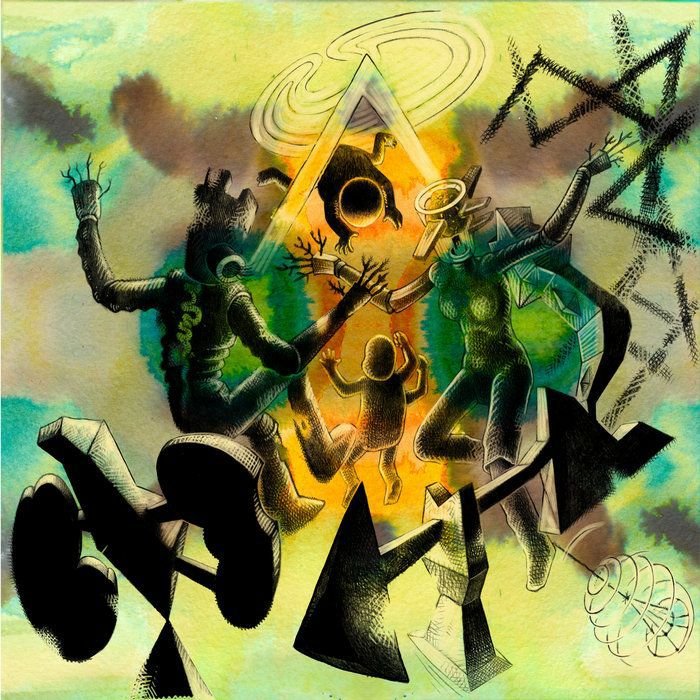
ALBUM OF THE WEEK
Shackleton – Departing Like Rivers (Woe To The Septic Heart)
Like walking into a cathedral with your eyes fixed upwards, the towering grandeur of Shackleton’s work induces a sense of vertigo no matter how fixed to the ground you are. The visceral impact of his music over a soundsystem has a levitating quality that at times gets positively giddy, but to commit to one of his albums with some appropriate sound carriers is to be encircled by ancient architecture that looms and bears down upon its subjects – great halls carved out of the cliff face, shimmering palaces framed in gold and clad in blood red marble.
Imagery comes on strong when trying to communicate the sonic experience Shackleton creates, primarily because he’s so far from any worthwhile musical reference point. Listen back with honest ears to the early Skull Disco works and ask yourself, is it really dubstep? He was already far from the shore at the outset, and his ship hasn’t steered back towards dry land ever since. The only certainty on hearing a new Shackleton work at this point comes from the breadcrumbs he left behind him. Elusive and aloof though his personality may be, he’s plenty generous with his music, and a keen follower understands his musical language more readily than someone new to his work. It quite simply communicates on a different plane, where melody, rhythm and space swim according to their own logic, dissonance can be the resolution and a disembodied voice can be a profound soothsayer and garbled rambler in the same breath.
The past few years have seen a broad expanse of collaborators entering the Shackleton universe, from long time doom-monger Vengeance Tenfold to Anika’s cracked folk cradling, and most recently the ascendant jazz instrumentation of Waclaw Zimpel. There’s a definite sense of dialogue in each distinct project, but Shackleton’s otherness remains the common theme. Still, as he presents Departing Like Rivers as his first solo album in nine years, it’s a welcome moment to reflect on the artist with clarity. It’s also worth considering that the last time he flew solo was Music For The Quiet Hour / The Drawbar Organ EPs, which heralded the start of his label and a decisive step into this expansive realm of myth and magick,
Much of Departing Like Rivers comes on like cinematic soundtrack composition –moments of protracted tension sprayed with sheets of tone and humming subs, but they’re punctuated with outright explosions of energy. The toms that come thundering down on ‘Something Tells Me / Pour Out Like Water’ feel like ritualistic stadium rock. But here, such elements are smaller pieces in a more meditative puzzle. They’re given as much emphasis as snatches of vocal and clangourous bells, where once drums would have been the bedrock of a whole track.
The strange folk idiom which has permeated Shackleton’s sound over time is certainly etched into the walls and pillars of his temple – at times its quaint and delicate inference is subsumed by the larger slabs of hard material that come quaking up from the earth beneath, but there’s always space for it. No matter how kinetic and vivid the scene gets, there’s a level of restraint exercised. The sound may get disorienting and wild, but it never resorts to flashy DSP production methods to achieve its ends. Instead, Shackleton leans on resonance and reverberation, allowing bleeding decays to create new shapes with a more natural aftertaste than high-def VST acrobatics would achieve.
In a narrative sense, Departing Like Rivers works exactly like a Shackleton album should. You may stride in with confidence, hip to his game having picked up the aforementioned breadcrumb trail, but 20 minutes in and it feels as though every step reaches another crossroads, where each possible turn folds back towards you in precognition – a mockery of linear time passage rendered in sound. It’s a marvel to behold, and all the better when you submit to it. There’s just one moment where he plucks you from this fantasy roleplay simulation, as a cassette gets loaded with a crisp clarity that borders on ASMR at the start of ‘One Of Us Escaped’. It’s a head-shaking wake up which inverts almost immediately as the sound plunges straight back down into the depths of the album and we’re informed “the sky’s going to burst”. Long may Shackleton reign – an unpredictable potentate in th wyrd kingdom of his own macabre design.
OW

Lou Hayter – Private Sunshine (Skint Records)
Don’t let her name fool you — this stunning debut album from Lou Hayter is packed with positive feelings from the off. A love letter to yacht pop and sun-drenched terrace parties, the fact it’s dropping on the cusp of autumn setting in only makes the record more essential, with enough warmth here to see you through the impending dark season and out the other side.
Inspired by her hometown, London, Private Sunshine represents a nostalgic trip into the hinterland between electronic soul, disco, e-funk, slo-mo house, and Balearic. A collection of tracks that land with the appropriately titled, swooning synth balladry of ‘Cherry On Top’, and don’t let the atmosphere falter until the final hushed, gentile keys of head-nodding plodder ‘Pinball’, a quiet but effective closing track that allows
Hayter’s vocal prowess to shine thanks to the minimal bells and whistles of this R&B-esque number.
For the most part, though, things are distinctly more dance floor friendly, albeit those floors aren’t the sweat-soaked mass of bodies we often think of when it comes to clubs. Instead, they are the retro-tipped, slick and sexy soirees where guilty pleasures and quality music to make bodies move intersect and merge. Adventures in the deepest underground of chart-friendly pop, would be one way to put it. Efforts like ‘Cold Feet’ are crying out for sing-along sessions with friends, ‘This City’ nods to Mr Fingers, the reworking of Steely Dan’s ‘Time Out of Mind’ feels as though it has just stepped out of a 1980s movie, while ‘Still Dreaming’ could be a lost Madonna track from her pre-Immaculate Collection era. Simply put, Skint have hit the motherlode in terms of universally appealing, specialist sounds, with Hayter delivering an LP which is guaranteed to last.
MH

Angels & Airwaves – Lifeforms (Rise)
In the seven years since Angels & Airwaves’ last full-length, the criminally overlooked, ‘The Dream Walker’, a whole lot has changed.
The indie-cum-space rock group have all but taken a backseat this past decade while forever endearing frontman Tom DeLonge (the groups mastermind and sole original member) expanded his horizons into the realms of government funded/approved extra-terrestrial research. UFOs to be more succinct.
Unfortunately, with little time devoted to music, DeLonge was all but ousted from Blink-182, his primary project and entry point into the industry.
Therefore, now with creative sights reset firmly, an outlet was needed for new material, and here is where we arrive at ‘Lifeforms’. Easily the longest gap between AVA projects yet, only one year less than the original wait between Blink albums after their initial hiatus, the band and more accurately, DeLonge, have taken strides to mature and somewhat simplify their core sound.
The first slew of singles teased over the past year, ‘Rebel Girl’ and ‘Kiss & Tell’, both gave the indication of a gentler, prog-pop direction, but the anthemic riff-heavy mammoth, ‘Euphoria’, made clear that this project would be equally difficult to pin down as their previous works.
The balance between catchy, hook-laden pop and progressive, sci-fi tinted post-grunge, has never felt so blatant yet simultaneously nuanced. The synth lines are crisp and slice with lazer-like definition over unique rhythm sections, equally crafted via reverb drenched guitars and artificial programming.
There’s a sense of urgency across these ten tracks, with little room for shoegazing or self-indulgence. Its intent is that of a space opera, but one that doesn’t require two hours to listen to, or a dozen sit throughs to appreciate.
‘Restless Souls’ and ‘Losing My Mind’ further these sonic sentiments, with a band sounding more than settled and contented with their dynamic after so many projects. Let us not forget Angels & Airwaves also features members of Thrice and Nine Inch Nails.
After such time away, and following up a career-best album, ‘Lifeforms’ was given an unenviable task, one that DeLonge and his bandmates have approached with great care in order to subvert expectation and anticipation. The end result is something quite unique, a familiar but somehow refreshing revitalisation for longtime fans yet a methodical introduction for newcomers alike.
ZB
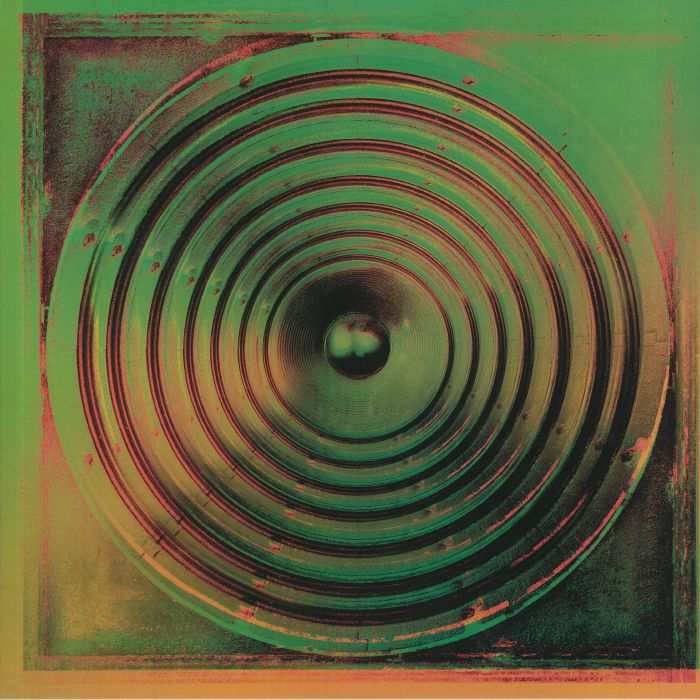
Has Don Letts put together the greatest covers compilation of all time? In a word, ‘no’. But that’s really only because to describe Version Excursion as a covers compilation feels profoundly reductive. Yes, the tracks that make up this are predominantly reimagined takes on tunes — some of the originals will certainly be familiar (‘Love Will Tear Us Apart’), others probably less so. But these are more than mere alternative versions and reimagined takes on existing tracks.
Most of what’s on here was repurposed by dub reggae artists from the Caribbean islands. And it’s a culturally significant point, reflective of how the early scene successfully reappropriated 45” singles from up north in the US and made them into something entirely new and — crucially — very much of the region. Sub bass-heavy, spatial, often-psychedelic, certainly packed with a sparse but deep atmosphere, a few numbers into this 21-strong collection (13 of which are exclusives) and you start to forget the originals even existed, and move well beyond comparisons.
Standout moments include the strikingly good Prince Fatty & Schniece McMenamin interpretation of Jefferson Airplane. Here dubbed ‘Black Rabbit’, anyone who thought that totem of 1960s, psilocybin-fuelled joy was already trippy enough should prepare for a surprise. Elsewhere, Gentleman’s Dub Club show us exactly what it means to toy with melody on ‘Use Me’, while Ash Walker’s ‘There’s Nothing Like This’ arguably edges closer to the sweet smell of a clean, crisp vocal anthem. At once calling on material from the worlds of R&B, Mersey Beat, soul, disco and hip hop, to name but a few, here’s proof that siloing music has never been a good idea, and a compelling argument for just how connected everything is. An album that could only be put together by a musical genius, and avid digger.
MH
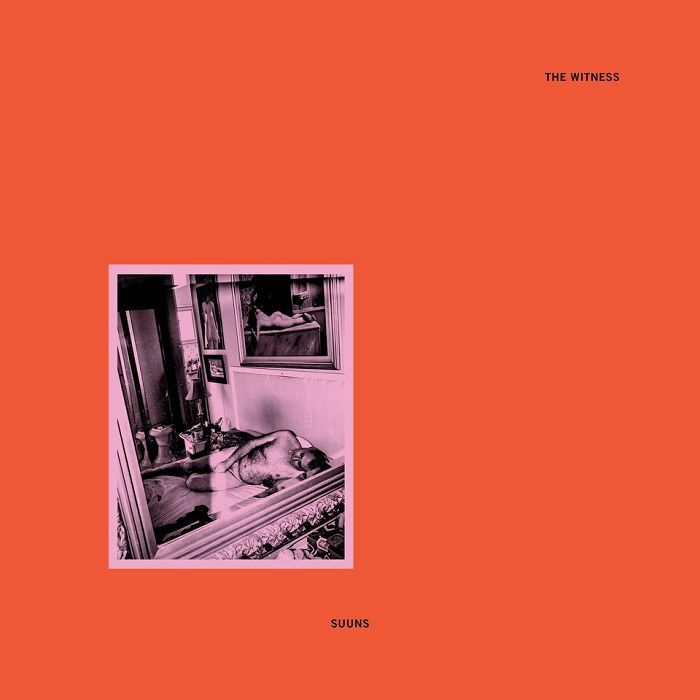
Suuns – The Witness (Joyful Noise)
It’s album five for Montreal’s SUUNS, a clear sign of quality over quantity if ever there was one, consider-ing this troupe have been doing the do for 13 years. As per, it feels like every element here has been fine-tuned and crafted to perfection, with nothing left to chance. Something of a departure from previous outings, here we find singer and guitarist Ben Shemie stepping into some interesting lyrical territory, and finding his way to a place in keeping with the album title — highly observant, and devastatingly poignant.
Take ‘Clarity’, for example. Track five on the album directly approaches the idea of pulling off the veil and looking at things. More so, actually seeing them for what they really are. Self-recorded and self-produced during 2020, a year when we all were given plenty to reflect on, and consider changing about ourselves and our lives, it’s not that The Witness doesn’t sound like SUUNS, more that SUUNS have always been difficult to pinpoint in terms of where their sound is. In this instance, think the DNTEL-end of outsider music, a lo-fi electronica triumph married to experimental whispered rock, synthesised emotions that are realer than most feelings.
MH
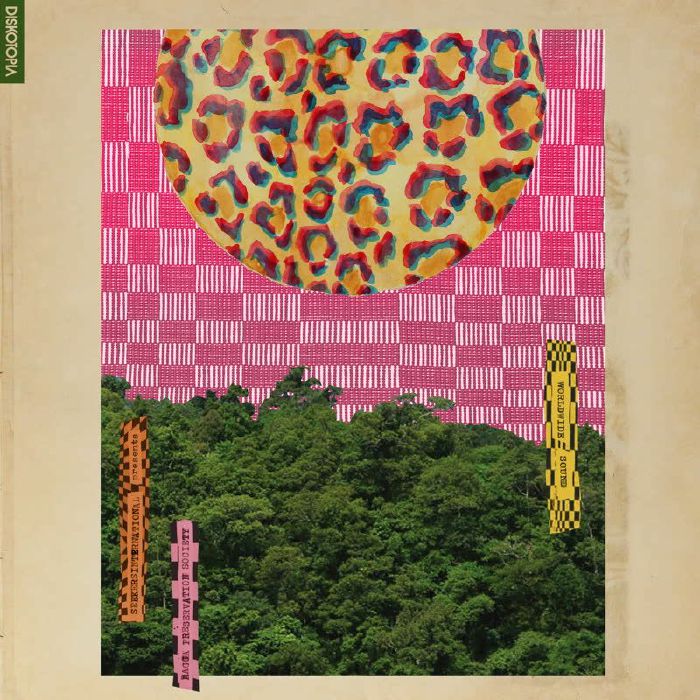
Seekers International – Ragga Preservation Society – Worldwide Sound (Diskotopia)
10 years since they first materialised, and there’s still an ineffable mystery to Seekersinternational. Sure, the artists themselves keep a low profile albeit without any sense of anonymous posturing, but I’m talking more about the music they make. In the genreless era everyone’s idiosyncratic, but Seekers take things that little bit further. Their sound is vivid and dense like a thousand layers of graffiti on top of each other, but it’s also amorphous and slippery like jelly yet to set. It’s powered by a deep reverence for Jamaican music culture, but it’s almost comically futuristic where so much reggae-related culture is doggedly traditional. The Canada-based collective have released enough music by this point to have established their approach – they’ve released loads, in fact – and yet it still confounds in the most marvellous ways.
Having released the RaggaPreservationSociety EP on Diskotopia and Sneaker Social Club back in 2016, Seekers return with a spiritual sequel to that record, and it’s every bit as mind-bending. What’s different this time around is that Seekers are a much more established concern, and the album is loaded with notable collaborations. Some come from original sparring partners like wzrdryAV, and others are new and in some case unexpected. Roger Robinson sounds at his sweetest as he floats in the dizzy climes of ‘Kill-A-Milli’, a soundboy slayer from dimension X which uses a devastating break to hammer the message home.
Seekers are irrepressible, whoever they work with, though. Listen to what they do with the ‘Think’ break on ‘TrussUBad’, a somewhat surprising collaboration with Second Woman. No one else would think to jitter that iconic sound in that way and run it as a textural bed, James Brown’s pitched up voice reduced to a percussive stammer and overwhelmed by wave upon wave of hardcore, ambient and a nagging pan pipe synth hook which sounds like it has Second Woman’s stamp on it.
As with previous Seekers releases, the sensory overload is real. It’s an experience akin to inverted ambient, where the sound rushes through you and sets the tone for an imagined space which is all Seekers’ own. The walls are daubed in scrawls, flyers, photos, stickers and sweat, the lighting comes in thick pinks and purples, and a cavalcade of cultures intermingle under the cracked disco ball. The punch is laced with something strong, but as long as you’re in the space, it all makes sense.
OW
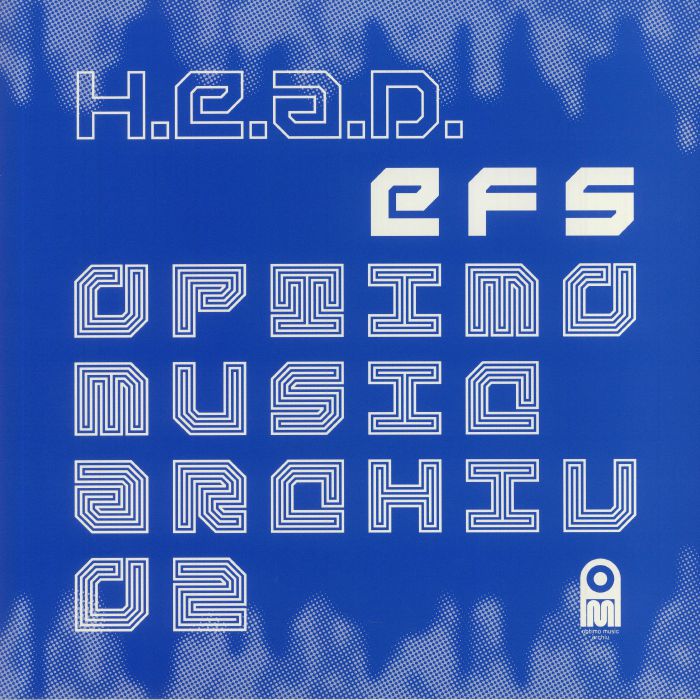
H.E.A.D. – EFS (Optimo Music Archiv)
Can Oral, also known as Khan, has done a lot in his musical life. He was in the theatrical Captain Comatose deep house outfit in the 00s, worked on reams of projects with his brother Cem through the 90s, had a new wave band in the mid 80s, ran a record shop in New York for 10 years and a whole lot more besides. He’s the kind of artist who reveals further hidden mysteries depending on which area of his life you happen to be focusing on. Amongst his many endeavours is H.E.A.D., a project with Kerosene (aka Roger Cobernus) which ran across three albums in the NYC years during the 90s.
Oral himself describes EFS as an “acid ambient album… recorded in 1993 at Khan’s kitchen on South 2nd St. Brooklyn”. It’s also reportedly titled in homage to Can’s album Unlimited Edition. Quite whether you’d deem the contents of this album “acid ambient” is debatable – it fizzes with far too much pronounced anima to be an outright ambient album, even if it stops short of the typical dancefloor application of a TB-303 and some drum machines. There’s a certain backroom demeanour that comes through on ‘EFS4’, which lopes along with a funky swagger and a full-bodied harmonic, but it conjures up a sprightly space for extravagant night-denizens to strut and preen rather than a spongy bosom for weary ravers.
What makes EFS so special – and anything Optimo decide to reissue is sure to feature some kind of spark – is the apparent disregard for the strictures of acid house that were already rote by 1993. The album plays out more like an industrial project, all DIY distortion and a cavalier approach to sequencing, but behind the avant garde angles a warm, gooey centre of bubbly house delight pulses away. The sweet symbiosis between experimental and dance music renders every track as an astounding gem, from the noisy throb of ‘EFS9’ to the psychotropic proto-trance chugger ‘EFS5’. With a sparkling sonic finish which belies the modest environment it was birthed in, Oral and Cobernus created something magical on EFS – one of those reissues that’s truly deserving of another trip out under the veil of night.
OW

Amon Tobin – How Do You Live (Nomark)
Having given each of his post-Ninja Tune alter egos the chance to establish their unique characters over the past two or so years, Amon Tobin returns to his own moniker to offer us ten unique and highly original tracks worthy of his esteemed reputation. Never one to stand still, he’s progressed steadily since his days as a leftfield breakbeat merchant to where he is now, which on this evidence is a sound painter of vast and ambitious sonic canvasses, collages of instrumentalism that are hard to pin down but leave indelible marks on your psyche.
There are snippets that flash into view that one can grab onto – the pulsating electronics in ‘Button Down Fashion Bow’ that brings Pink Floyd’s ‘One The Run’ to mind, searing Vangelis lazer-like synths or bulging bass tones – but these are just as quickly swallowed up by the swelling mass of un-placeable abstraction. ‘Sweet Inertia’, billed as a collaboration with his own Figueroa alter ego, has oozing vocals – indeed, his voice appears throughout but most usually as a processed texture. ‘Now Future’ is perhaps closest to the hyper splintered d&b sound he’s inhabited in the past, but overall there’s precious little else to make the listener feel at ease. Generally it’s tense, eerie and occupying new territory in a unnerving but exhilarating fashion.
Above all, this is an album that you’ll keep coming back to and one that you’ll be hearing new things in for many years to come. Amon Tobin won’t make life easy for you – he never did – but the rewards are immense.
BW
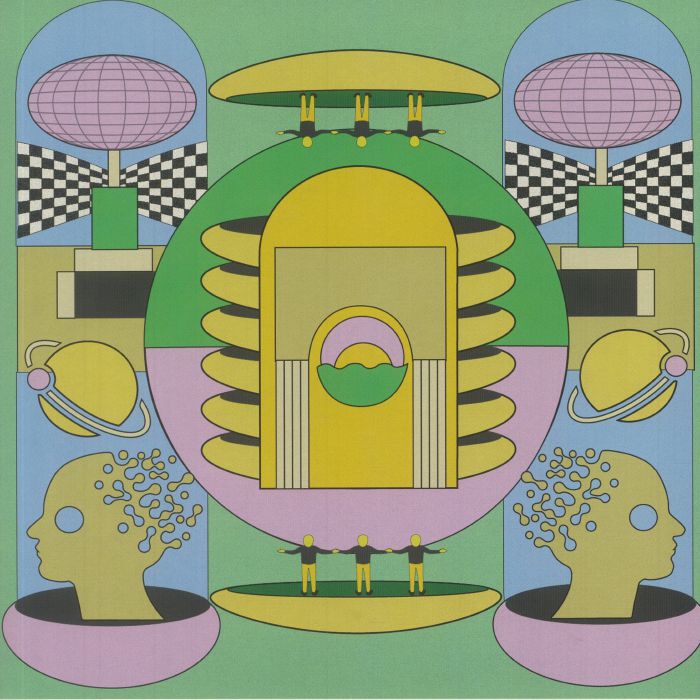
Lenny – The Yellow Zone (The Yellow Zone)
As one half of Zendid, Toulouse-based producer Lenny Mallieau has been lurking around labels like yoyaku, Discobar and others for a fair while now. Primarily working in the broad church of minimal, where breaks and electro are as valid as a pinprick hi-hat, he’s been feeding into a relatively straight-forward scene with well-chiseled club music. So far so standard, but now Lenny is casting off on his own with a new label and a release of the same name, The Yellow Zone. It’s not a hard concept to grasp, and a steady slip into the sound of the record will tell you all you need to know about what exactly ‘the yellow zone’ is.
Lead track ‘Lucid Dream Team’ spells it out in a lovely wobble of pitch-bending globules and lackadaisical micro funk that comes on like astral downtempo for retired b-boys turned space age lounge lizards. There are some spicier breaks to be enjoyed on the likes of ‘Jinga Tronismo’, while ‘Station Mic On’ features Michel 7000 humming behind a sizzle of hi hats and murmuring dubby pulses. It’s all off-kilter, but in an understated way. What made this debut release from an un-established name leap out is its sharp balance of surrealism and satisfaction – it’s got plenty of funk to match the freakiness, and a healthy dose of freshness too. The Yellow Zone – a thoroughly pleasant place to find yourself.
OW

Hiro Kone – Silvercoat The throng (Dais)
The artistic stamp communicated from Silvercoat the throng is so vivid and nuanced, it leaves your head spinning on the first listen. Nicky Mao, aka Hiro Kone, sounds devastatingly assured in creating a brooding yet expansive work, freewheeling and omnivorous but wholly focused. Their collaborative choices are bold musical spirits in their own right, and the palette sprawls across a panoply of synthesis and instrumentation. By rights it should be a fragmented mess, but instead it bends and stretches with agility without ever losing its form.
Collaboration has been a part of Mao’s practice since before the days of Hiro Kone, and they worked with ex-Coil affiliate Drew McDowall on 2018’s The Ghost Of George Bataille, but the New York-based artist possesses a conviction which holds fast in any circumstances. On Silvercoat the throng, you can instantly recognise the needlepoint punctuation of Deforrest Brown Jr’s Speaker Music signature flickering through ‘Reciprocal Capture’, and yet his inimitable approach to programming seems to melt into Mao’s great daubs of luminescent melody.
Harder to tame is travis from experimental gospel outfit ONO, whose vividly enunciated voice cavorts through the discordant orchestration of ‘Nomad’, but Mao’s strings speak as a profoundly as the narrator. Palestine’s foremost beat emissary Muqata’a brings his colloquial gothic to bear on the album’s title track, and the synergy between his rapid-fire sampling and jerky drums, and Mao’s composition and sound design is remarkable.
Don’t let the notable partnerships distract you though – this is Mao’s work first and foremost, and it towers in its monumental execution. ‘Mundus Patet’ rushes with jangling nerves between passages of intense sound sculpture. By way of contrast, ‘Parting Phrase’ strips away dramatic blocks of rhythmic noise and leaves a fraught violin ample room to sway. Silvercoat the throng doesn’t attempt a heavy-handed concept as it reaches with long arms across great distances, but rather casts an evocative shroud which heralds multiplicity as the last taboo for an artist’s clarity of vision.
OW

Thomas Köner – Aubrite (Mille Plateaux)
Thomas Köner is best known as one half of Porter Ricks, a benchmark of the Chain Reaction label and thus the most visionary end of the dub techno phenomenon, but his work reaches further out towards experimental pastures across the decades. When Porter Ricks released Biokinetics and a string of seminal 12”s circa 1996, their grasp of sound design felt ahead of the pack in the techno game, but Köner had already been busy testing limits of production via his earliest solo efforts on Dutch label Barooni.
Aubrite is the fourth album in a run which established a fiercely committed approach to ambient music, in which Köner espoused his ideas about an “ultrablack” music. In writing Köner’s reasoning is a little abstract, but it all makes sense when you sink yourself down into the absolute chasms of Aubrite. This is a total, consuming darkness of sound – it’s no lie that I had to turn my system way up to realise the music was playing – but once you peep under the parapet, a stunning underworld awaits. This is drone in its absolute, shearing away so much information from the frequency spectrum, but also demonstrating how much can be expressed in such a tight bandwidth. Let it consume you, for there’s a cathartic power in music this stubbornly austere.
OW
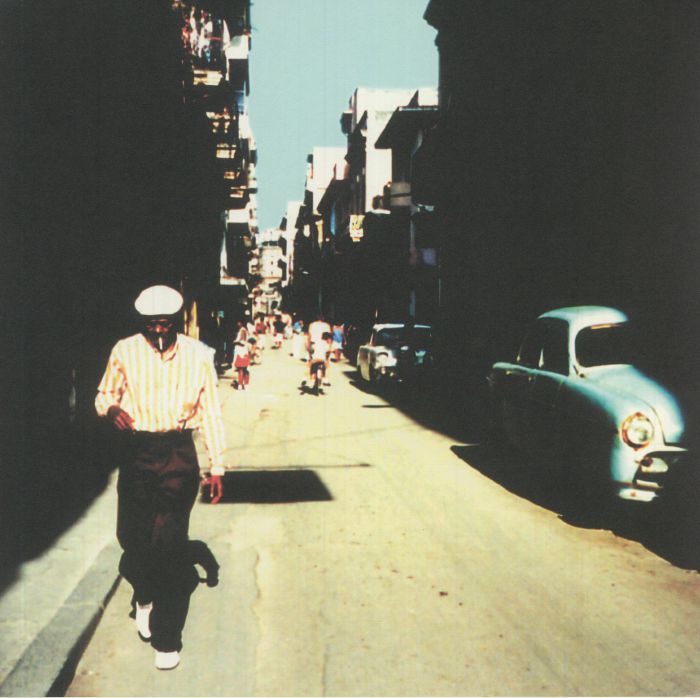
Buena Vista Social Club – Buena Vista Social Club (25th Anniversary Edition) (World Circuit)
World renowned International / world jazz group, Buena Vista Social Club, have released their 25th anniversary edition of their debut album with all stops pulled out. The Cuban ensemble founded in 1996, recorded the legendary record in just seven days, in Havana, under the direction of Juan de Marcos González and American guitarist Ry Cooder, no one could have predicted how this group of artists would be elevated to the world stage and come to popularise Cuba’s rich musical heritage.
Bringing their skills together as award winning musicians and documentary makers, the group revisit Cuba’s musical golden age of 1930’s to 1950’s and use that influence to produce great tracks for the masses. Their music has generated a revival of interest in Cuban and Latin American music worldwide among new and more seasoned fans. Producing relaxing notes and a chill Sunday garden vibes, the group presents music that allows one to reminisce of the dreams made before pre-revolution Cuba – before the domination of politics.
The album has been remastered by Bernie Grundman and will be reissued as a 2CD deluxe set in a 64-page casebound book packaging. This features new sleeve notes, photos and lyrics etc. The second disc in this set features 12 previously unreleased bonus tracks from the original 1996 session tapes.
AY
This week’s reviewers: Ava Yusuf, Ben Willmott, Martin Hewitt and Oli Warwick.